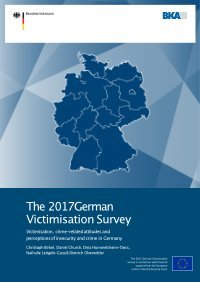By Dr. Christoph Birkel, Daniel Church, Dina Hummelsheim-Doss, Nathalie Leitgöb-Guzy, and Dietrich Oberwittler.
As megatrends, globalisation and digitisation are bringing about rapid changes, including in Germany. They are opening up a range of new opportunities, not only in the fields of economics, science and culture, but also in the way we access information, communicate with each other and participate in political and societal decision-making processes. But these new opportunities are being undermined by a highly uneven distribution of the benefits of globalisation and digitisation. This is a worrying development, since the resulting inequalities not only increase the risk of transnational conflicts, struggles over resource allocation and mass migration, but also threaten civil peace and social cohesion in the societies affected by these developments. The direct and indirect repercussions caused by such tensions are being felt across Germany as well, for instance in the form of an ongoing terrorist threat on our continent, an increasingly harsh political discourse, political radicalisation and forms of politically motivated crime, as well as through the ways in which organised crime and criminal clan structures are challenging the rule of law. These developments are fuelling a feeling of insecurity, which in the wake of digitisation is being amplified by the fact that, on the one hand, access to information is becoming easier, faster and more comprehensive, while, on the other hand, the authenticity of that very information is becoming increasingly difficult to validate. Free and unrestricted access to knowledge and information is a precious good, as it promotes informational participation for broad segments of society and increases transparency and democratic control. At the same time, however, it is also becoming easier to disseminate inaccurate information on a large scale, or even launch targeted disinformation campaigns or manipulate public opinion in a time in which the need for reliable sources is greater than ever. This is especially true for safety, where “fake news” can have a momentous impact in a very short space of time. Although representative studies and surveys have shown the current level of safety in Germany to be relatively high, various surveys have indicated that the German public often perceives the risks to be higher. This is why representative victimisation surveys and other tools are indispensable. They make visible the gap between perception and fear, on the one hand, and statistics and scientific findings, on the other. This knowledge can help us to design targeted information campaigns to dispel such perceived threats and feelings of insecurity. Representative victimisation surveys can also help us to identify actual increases in crime rates, introduce appropriate countermeasures and update official crime figures by shedding light on the dark figure of unreported or hidden crime. In addition, knowing the reasons why victims report, or choose not to report, an offence they have experienced will also allow us to improve criminal prosecution approaches in the future. Enriched by comprehensive insights into crime-relevant factors, victimisation surveys have the potential to deliver the crucial insights needed to successfully address the safety-related challenges of the present. Following up on the first German Victimisation Survey (Deutscher Viktimisierungssurvey, DVS) undertaken in 2012, the 2017 survey provides us with fresh sets of data to assess the development of crime and crime-related attitudes in Germany. Based on a nationwide, representative sample of the German population aged 16 and over, the 2017 survey not only yields insights regarding the current security situation and perceived safety across the population, it also allows us to draw conclusions by looking at the developments and changes since 2012.
Wiesbaden: Bundeskriminalamt - BKA, 2019. 127p.





